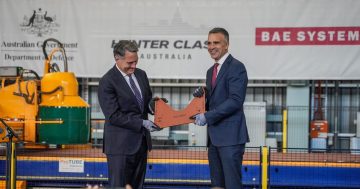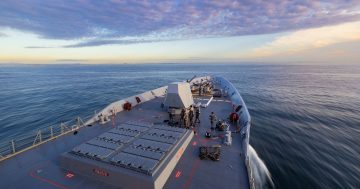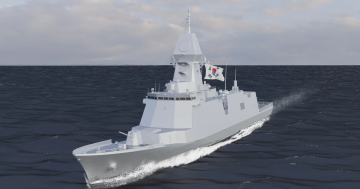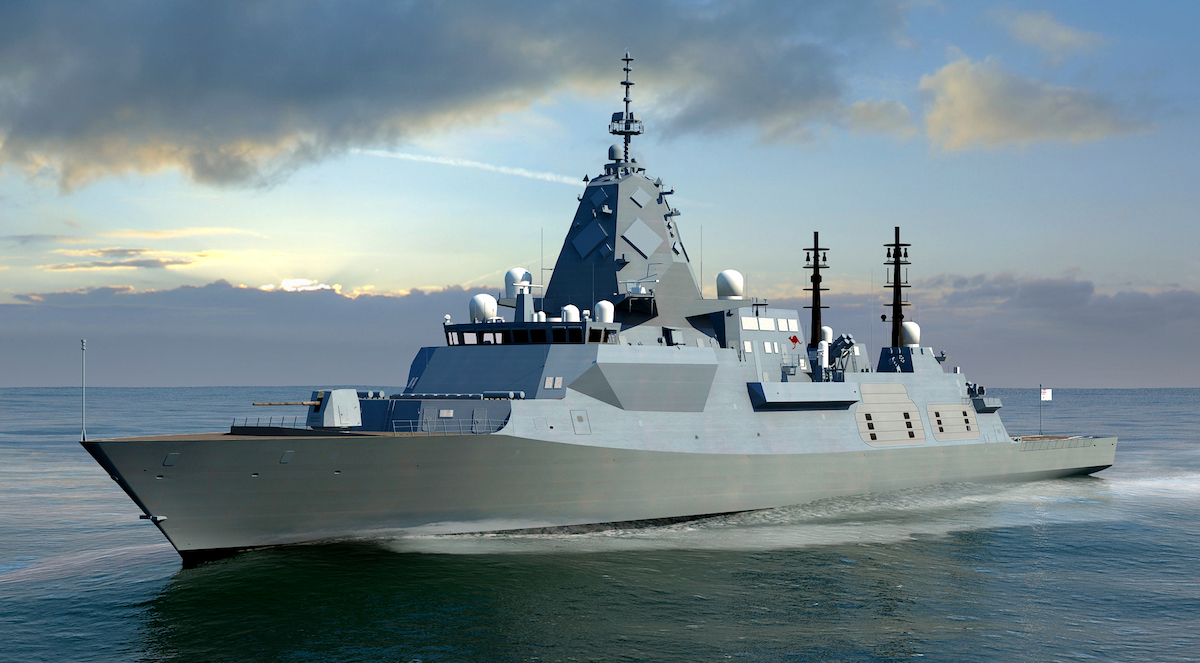
Concept art of the planned Hunter class frigate Image: BAE Systems.
The Defence Department has conceded it failed in several key procedural areas during the assessment and subsequent recommendation to government of the winning tender for the Royal Australian Navy’s Project SEA 5000 Future Frigate program.
The assessment was conducted from 2014 to 2018, with an Australian version of the BAE Systems Global Combat Ship/Type 26 design subsequently selected to replace the Navy’s eight ANZAC class frigates in service. The first Hunter class vessel was originally due to enter service in 2028, and production of all nine vessels would continue well into the 2040s.
However, a scathing May 2023 Australian National Audit Office (ANAO) report found that Defence did not conduct an effective tender process for the $45 billion procurement and that the advice given to government at the ‘second pass’ announcement of the winning tender was not complete.
The Auditor-General found that improper record-keeping made it impossible to determine an accurate history of the evaluation process and why the winning tender was selected. The report also found that, despite no metal being cut yet for any of the nine planned vessels, the project is already 16 months late and more than $400 million over budget due to immaturity in the design.
In a 10 November response to the ANAO report, Defence Secretary Greg Moriarty said Defence undertook a review into its conduct of the Hunter class procurement up to and including second pass advice provided to government.
“The review focussed on the findings made by the Auditor-General in connection with the Hunter Class Frigates procurement process, including in relation to achieving value for money as it applies to the procurement of this Defence capability, and to formulate recommendations strengthening the development of capability procurement proposals,” he said.
He said a number of government ministers were “closely involved” in the assessment process and that iterative advice was provided to government, something Mr Moriarty said he “would expect given the scale and importance of the proposed program”.
“Additionally, officials were conscious that a key program objective from the outset was to ensure that the program could materially contribute to the implementation of the then government’s policy to achieve continuous naval shipbuilding in Australia,” he said.
But he conceded that despite saying the tender process was “sound and capable of supporting the recommendation”, it was “conducted within an accelerated timeframe”.
“If it had been afforded more time, the process would have been able to generate for all tendered options suitably acceptable whole-of-life cost models, a more detailed assessment of schedule, and a clearer understanding of the design issues that impacted each option,” Mr Moriarty said.
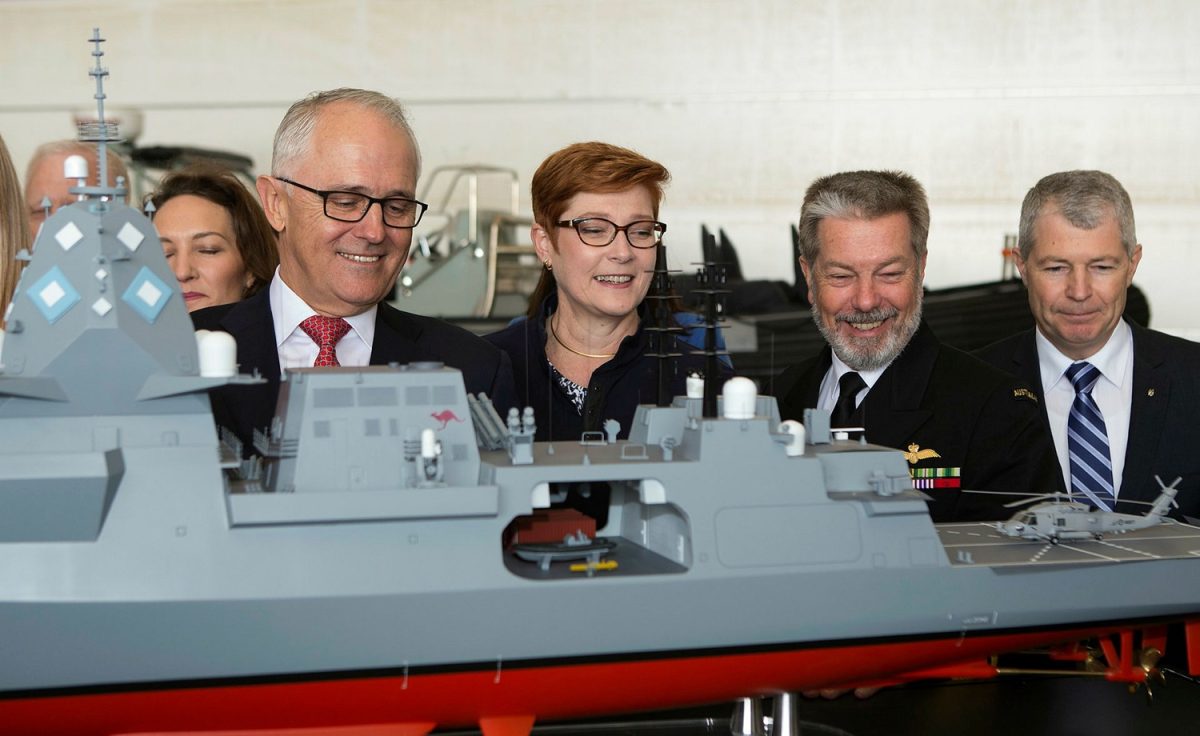
Then Prime Minister Malcolm Turnbull, Defence Minister Marise Payne, Chief of Navy VADM Tim Barrett, and SA Senator David Fawcett at the announcement of the winning SEA 5000 Phase 1 tender in Adelaide in June 2018. Photo: ADF.
He also conceded that between the first pass in 2014 and the second pass four years later, there was a “growing incompatibility between project objectives, including continuous naval shipbuilding, and the intended procurement method as described throughout the tender process”. As a result, “planning for the procurement fell into a process of disjointed advice to government”, something Defence “did not appear to recognise” at the time.
Further, Mr Moriarty found that deficiencies in the planning, shortlisting and down-select stages “complicated the ability of Defence to achieve value-for-money” and failed to achieve “compliance with legislated requirements and Defence procurement policy”.
“The absence of formal documentation means that there is no evidence to demonstrate that the shortlisting activities and decision were commensurate with the scale, scope and risk of the decision,” he said.
“Mandatory record-keeping obligations commensurate with the scale, scope and risk of the procurement were not complied with.”
He said the advice to government about the preferred tender was “poorly executed” by Defence.
“The tender process was structured around achieving project objectives advised to tenderers, but the advice to government was not complete with respect to the material outcomes of the process, affordability or compliance and risk assessments with respect to project objectives,” he said.
The program assessment and selection were made during a period of structural change for Defence after the handing down of the First Principles Review in 2016 and the subsequent adoption of the ‘One Defence’ business model, which was meant to strengthen accountability and establish a single capability development function within Defence.
Mr Moriarty said that, as a result of this, “there was a substantial change in leadership and management of capability proposals and related procurements” and that “there appeared to be no process during the transition to One Defence to assure the transition of procurement policy, processes and procedures”.
He said the lessons learned for Defence include implementing several changes to its policies to strengthen the procurement and the wider capability life cycle processes, such as changes in planning, responsibilities, accountabilities and authorities, contestability, record keeping, defence committee structures and governance.
“Defence has commenced the implementation of a program to embed these recommendations into Defence policy and governance structures,” he said.
“Defence is committed to continuing transparency and accountability in connection with these reforms.”
Original Article published by Andrew McLaughlin on Riotact.


